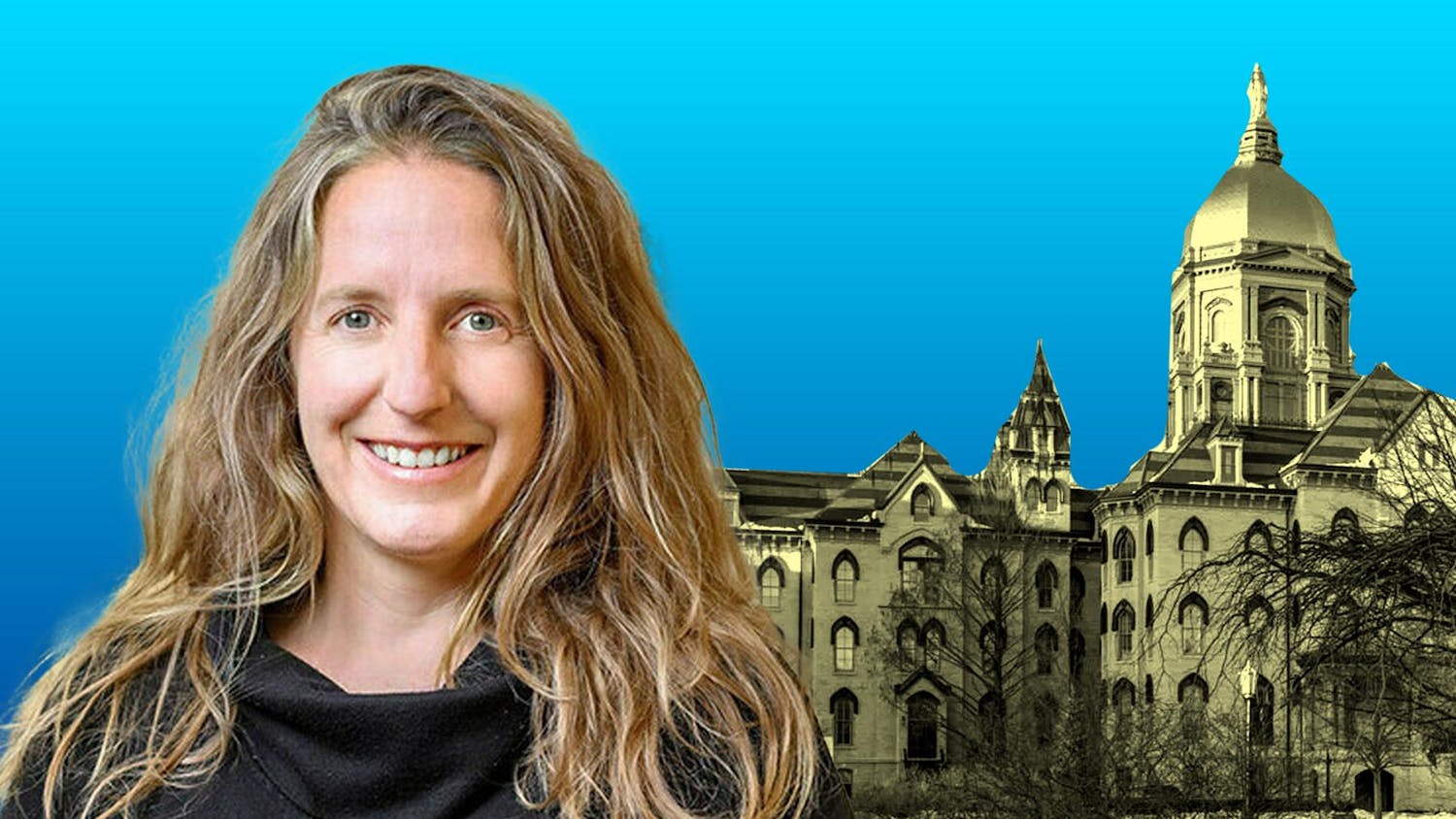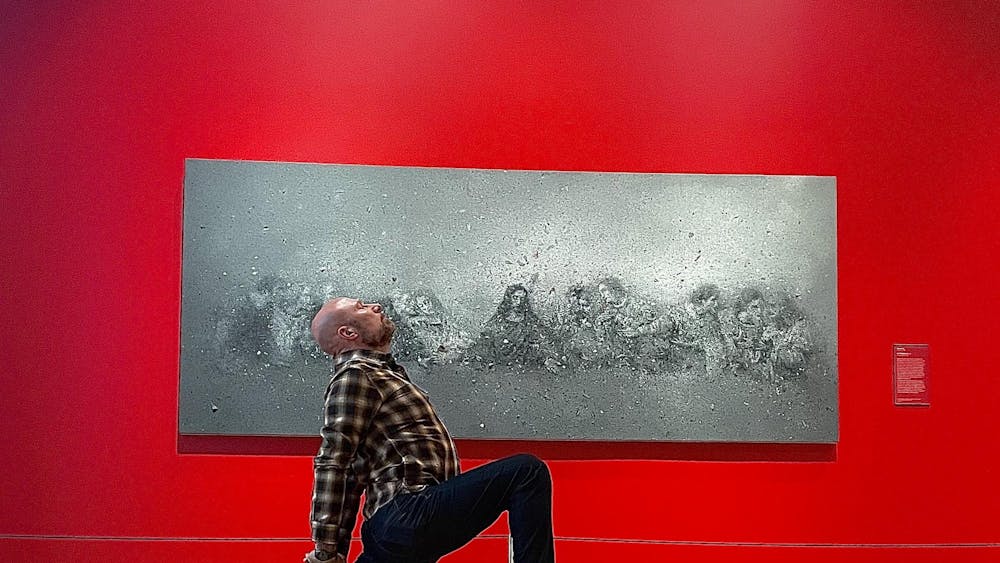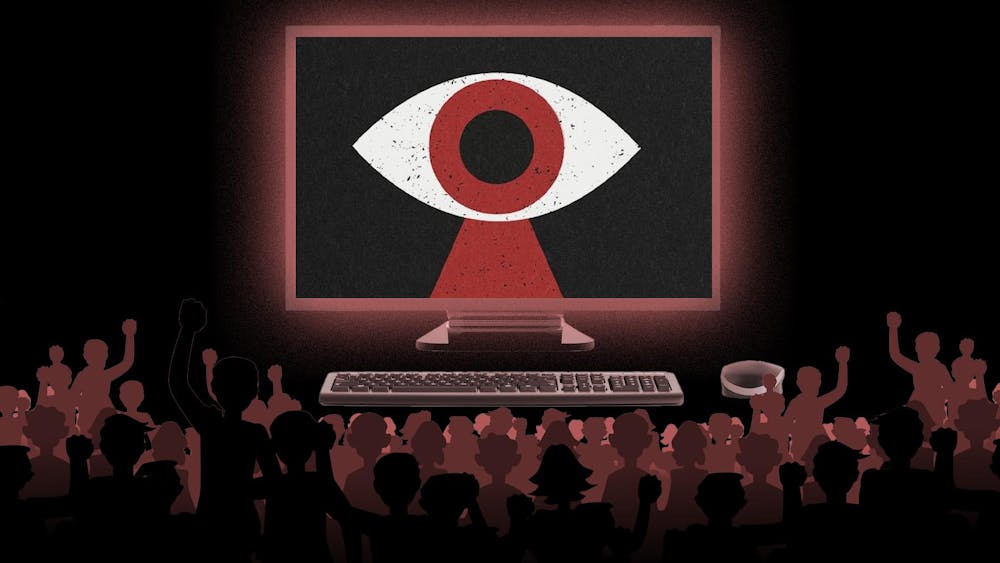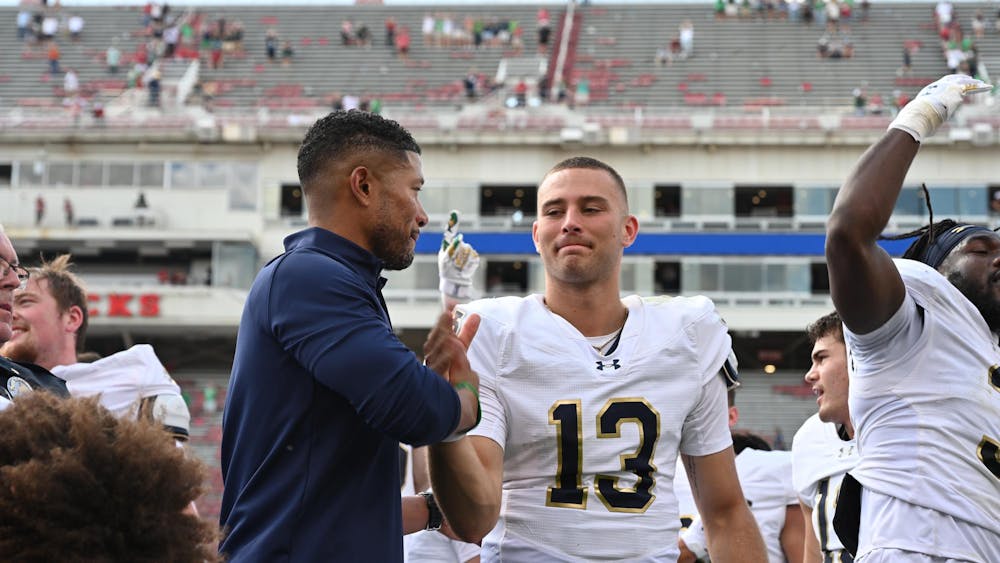The first dozen times I came out I cried. For many of my friends, it was the first time they had seen me cry. Ever. A high school friend once told me that I had two emotions: happy, and more happy. She was wrong. I felt a lot of things, but I had to hide them.
Before coming out, many LGBT kids worry that all love is conditional: conditional upon a secret, conditional upon an unmanifested condition, conditional upon being normal. Reading Tyrel London’s viewpoint, “Overcoming Hate" brought back memories of my undergraduate years. Almost no one knew. I suffered. At one point, an evaluator through health services said I may be suffering from major depression, PTSD, social phobia and agoraphobia. The screening urged me to contact a mental health professional. I started looking at graduation requirements at other universities. A semester abroad eventually gave me an escape from Notre Dame without having to answer awkward questions.
The semester away helped me to finally share my secret. Coming out was painful for me. It was painful, not because I was rejected, but because I was accepted. When you spend so much time fearing rejection, acceptance is something that cuts deep into you. It hurts to be loved in the places you’ve been ashamed of. I found acceptance, and I started to accept myself. But even after receiving acceptance from my friends and family, many questions were unanswered. How do I move forward? What does it mean to be gay and Catholic? How do I love?
For much of my life, I saw the Christian calling filtered through 1950s American life: fall in love, get married, raise successful children. This is the narrow vision shared both by the religious right and by the secular left: if love, then marriage. Historian Stephanie Coontz has pointed out that “new in the 1950s was the cultural consensus that everyone should marry.” She also notes that marriage has become the primary institution for intimate long-term relationships in American society. Coontz discusses a study, which found that “the number of people who depended totally on a spouse for important conversations, with no other person to turn to, almost doubled [from 1985 to 2004]… [And] the number of people saying they didn’t have anyone in whom they confided nearly tripled.”
Somewhere in history, marriage began to subsume our imaginative capacities when it comes to love. Increasingly, the only relationship of love with concrete long-term responsibilities that we can imagine is marriage. This is true both for the right and for the left. The American gospel teaches: “There is no greater love than to live in the suburbs with one’s spouse.” We ground the future of love and of society in arguments over the meaning of marriage. We’ve relegated love to marriage, and so we’re told to believe that denying a person marriage is to deny a person love.
The real Gospel also quite explicitly teaches, however, that the highest love is self-sacrificial friendship: “Greater love has no man than this, that he lay down his life for his friends.” Our inability to see friendship as the primary call to love for both gay and straight people bespeaks the lifelessness with which many of us present the Gospel.
In coming to terms with my own sexuality, I despaired of friendship with others. I could only see being gay through the lens of “intrinsically disordered” or “gay marriage." Gay people are often viewed either as a personified psychological disorder or as an embodied political issue. Christian rhetoric about homosexuality largely teaches gay people to be afraid of ourselves and to despair of our lonely futures.
I love the Church, and I believe Her teachings are true, even those about marriage. But I think Tyler London is right. In our arguments over marriage, “we forget about the human consequences of these arguments when or if they are carried out.” The Church’s missionary spirit, which dives into un-evangelized communities, learns their languages and offers them what they have always longed for, has been largely replaced by doctrinal and politicized zeal, which criticizes these communities from afar and offers no hope but only predictions of their destruction. Christians are characterized by political positions and not by evangelii gaudium. It’s like a priest I knew who once named my sins without offering to hear my confession.
We have to change. What may be needed is less of a focus on defending teachings and more of a focus on touching the lives of others. Talk about love will always carry less power than being loved. And we have to ask harder questions. Even if gay people accept the Church and Her teachings, what happens to us after we do? Where do we live? How do we love? Who do we rely on?
What next for love and marriage?
The views expressed in this column are those of the author and not necessarily those of The Observer.









